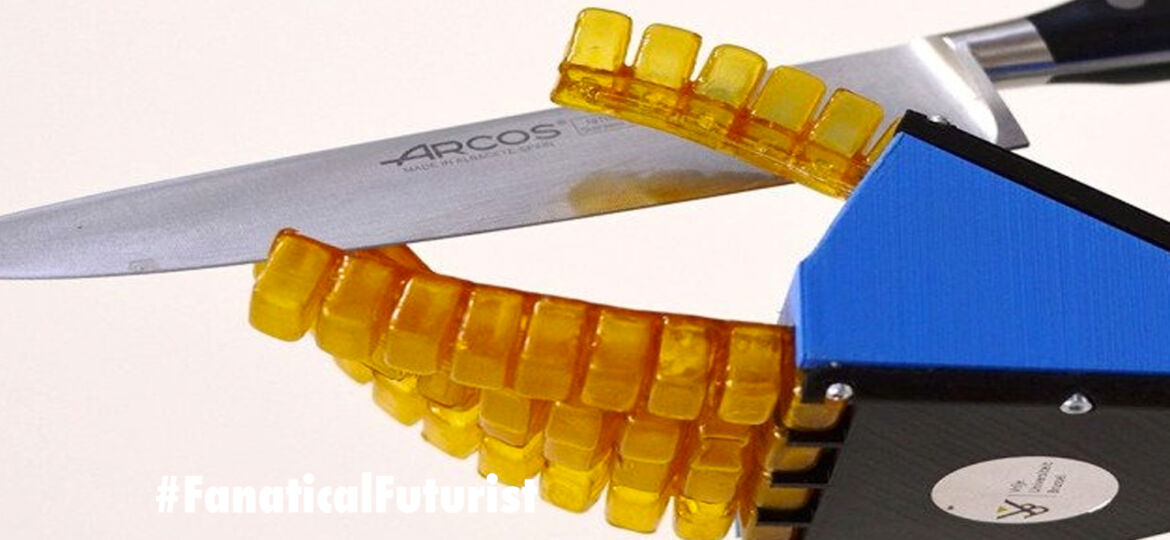
WHY THIS MATTERS IN BRIEF
Materials are an integral part of many products, and ones that can self-heal will help extend the life and usefulness of the products they’re used to make.
Robots already seem to have a great bag of tricks to draw on. They can balance, run, even do back flips, and then there’s their super human strength, the ability to feel, and their hive minds, and their supple 3D printed human skin finish, but now they’ve acquired another trick, the ability to self-heal. Roboticists have long wanted to make robots out of soft flexible materials but unfortunately many of those materials are prone to breaking and splitting, but that is all about to change thanks to a new breakthrough in self-healing materials that lets soft robots who get too close to sharp pointy things heal themselves.
To prove the new self-material works researchers at the Free University of Brussels (VUB) in Belgium, who published their work in Science Robotics, created a gripper, made from a robot hand and a synthetic muscle, all with the ability to self-heal, out of rubbery polymers that look a bit like jelly that when ripped or cut were able to knit themselves back together completely. And all the team had to do was apply some gentle heat.
“The polymer we created has lots of different strands that lock together to form the material. When you add heat, they reorganise to stick back together without leaving any weak spots,” says Bram Vanderborght, who led the research.
The soft materials are ideal for picking up delicate items like fruit or veg, so could find uses in the agricultural industry as fruit harvesting robots, like these ones, or in the food packing industry, perhaps in vertical farms, or in online grocery companies warehouses. Additionally, they are useful for working alongside humans, such as in factory lines, where softer robots or robotic arms will help avoid harmful accidents.
In the future, Vanderborght and his colleagues want to make the self-healing properties automatic, either by altering the material or by making robots that can apply heat themselves.
“At the moment when ordinary robot parts break they have to be replaced, but that’s soon going to change,” he says.
















